30 Best Chinese Movies Ever Made
Before starting off with this article, I would like to state one thing: Hollywood is not the be all and end all of cinema. While it is true that Hollywood is home to some of the greatest filmmakers of the world, it is also a fact that the obsession surrounding Hollywood is a product of certain not-so-obvious factors. First of all, as the genius Satyajit Ray points out, for filmmakers of the rest of the world, it is impossible to make a film like Spartacus as such an elaborate set is beyond their means. So, obviously, they have to devise new ways to enrich their art and yet keep the costs at a minimum. The glamour associated with Hollywood often overshadows the works of artists from the rest of the world even if they are as good as, if not better than, filmmakers from America.
Although China and the surrounding East Asian nations are making a lot of strides in making great cinema, we don’t see them getting the due credit for their work neither do they get the necessary exposure. The need of the hour is for the Asian filmmakers to match the production budget and the technological advancements of the western filmmakers if they want to seek the necessary attention.
In recent years China has been a consistent source of delight for cinephiles from around the world (Wong Kar-Wai’s ‘In the Mood for Love’ is at No.7 on our best movies of all time list) Filmmakers in China have been experimenting with various forms and have produced new works that stand out from most other forms of filmmaking. Here is the list of top Chinese movies ever. You can watch some of these best Chinese movies on Netflix, Hulu, or Amazon Prime.
Although China and the surrounding East Asian nations are making a lot of strides in making great cinema, we don’t see them getting the due credit for their work neither do they get the necessary exposure. The need of the hour is for the Asian filmmakers to match the production budget and the technological advancements of the western filmmakers if they want to seek the necessary attention.
In recent years China has been a consistent source of delight for cinephiles from around the world (Wong Kar-Wai’s ‘In the Mood for Love’ is at No.7 on our best movies of all time list) Filmmakers in China have been experimenting with various forms and have produced new works that stand out from most other forms of filmmaking. Here is the list of top Chinese movies ever. You can watch some of these best Chinese movies on Netflix, Hulu, or Amazon Prime.
30. The Legend of Drunken Master (1996)
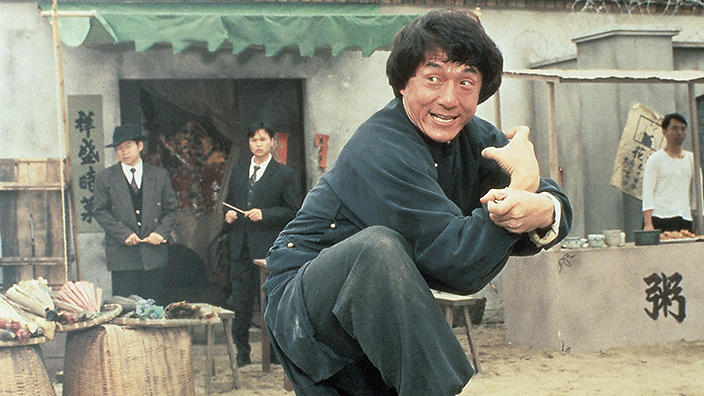
The film is a continuation of the story of ‘Drunken Master (1978)’, but the sequel features Jackie Chan as the leading actor. Chan plays Wong Fei-hung, who initially is caught up in a squabble with British expatriates who he thinks are stealing precious and indigenous ginseng from his country. As the quarrel grows, Fei-hung likes to get involved in a variant of Kung Fu he calls Drunken Boxing and deems himself as formidable. While most of the fight sequences initially seem laughable at best, they are elaborately filmed and executed, this making ‘The Legend of Drunken Master’ one of the most exploratory Kung Fu movies of all the time. Watch it for Chan, who looks a lot younger and agile.
29. Lust, Caution (2007)
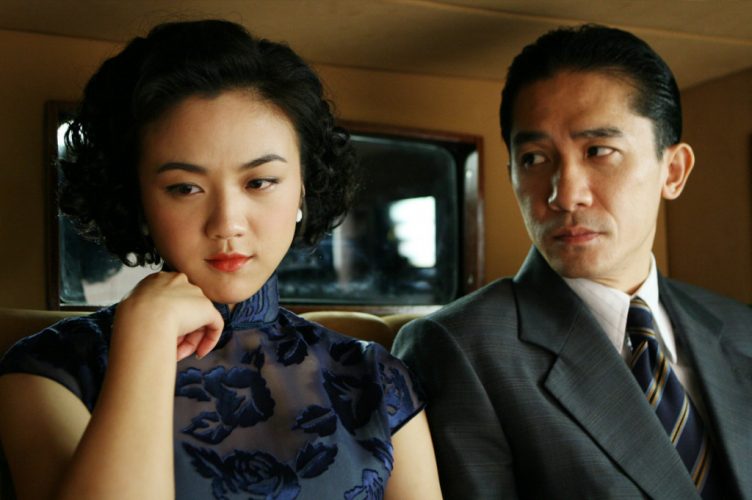
If you’ve watched ‘Brokeback Mountain’ you should also watch Ang Lee’s critically acclaimed espionage thriller ‘Lust, Caution’. Based on events that occurred after the Japanese occupation of Shanghai it shows a group of university students attempting to assassinate a high official of the Japanese-controlled government of Shanghai. It is Lee’s second film to have won the Golden Lion award at the Venice Film festival.
28. Infernal Affairs (2002)
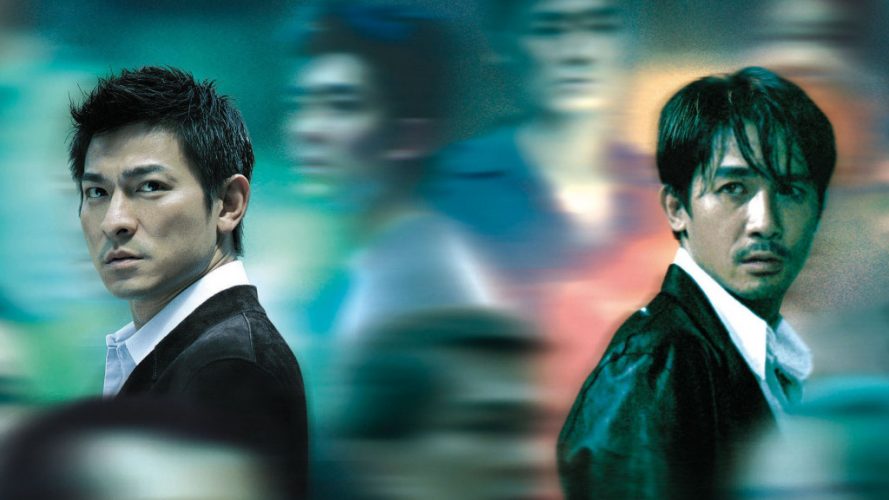
Originally, a film based in Hong Kong, any list on Chinese cinema is incomplete without ‘Infernal Affairs’. Not only is it the film from which Scorcese made ‘The Departed’ which was not half as good, ‘Infernal Affairs’ stands out on its own right as one of the finest crime thrillers of the 2000s. Following the paths of an undercover cop and a triad member who infiltrates the police force, this film will leave you catching for breath.
27. Raise the Red Lantern (1991)
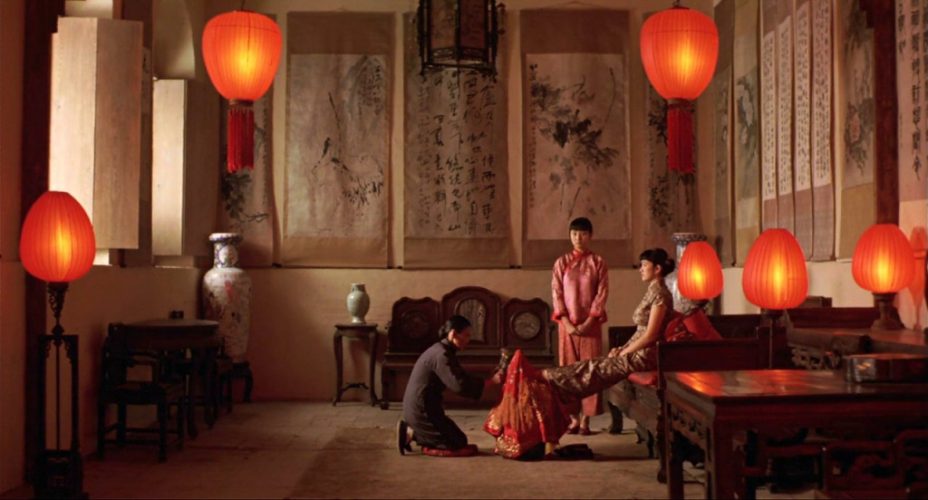
One of the several films of the fifth generation to have been banned in the mainland, ‘Raise the Red Lantern’, it is the story of a young woman who becomes a concubine of a wealthy warlord during the warlord era. Much like ‘Farewell My Concubine’ the film has a distinctive extravagance in its visuals that will sweep you off your feet. Although denied by the director, some critics have assumed that the imagery of the warring lords in this film is actually symbolic of the fragmentation of society in the post-Cultural Revolution era in China.
26. House of Flying Daggers (2004)
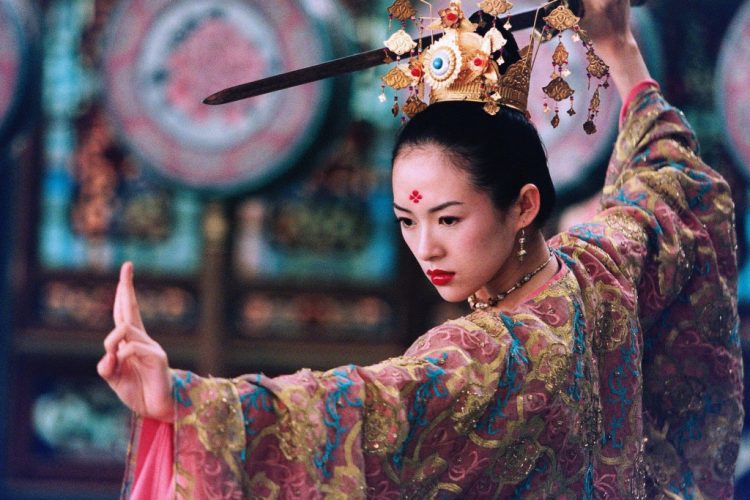
With a shoestring budget of $12 million USD as per the modern standards, ‘House of Flying Daggers’ went on to make more than 8 times its budget in box office revenues, all thanks to the amazing star cast and mind-blowing production design and editing and some exemplary direction. Featuring Zhang Ziyi, one of the top Chinese actresses today, the film is set in the 8th century China, when there were many rebel factions trying to take their share of power amidst a corrupt government. The House of Flying Daggers is a faction which specializes in flying daggers that can eliminate people at the blink of an eye. When the government sends two police officers to spy on a dancer Mei, who has connections with the revered faction, one of them falls for Mei and misleads the police, thus leading to even more complex turn of events. A fun-packed adventure comprising all the elements of a winning cinema, ‘House of Flying Daggers’ is simply splendid.
25. Still Life (2013)
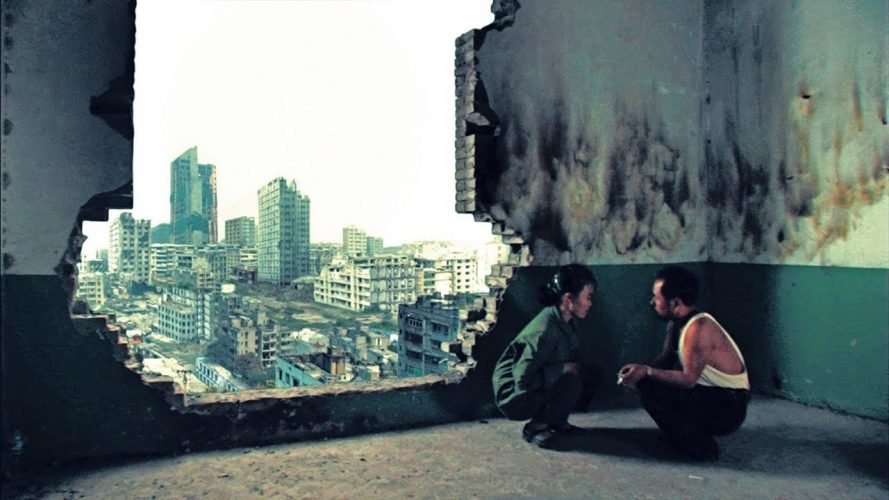
‘Still Life’ is the story of two people searching for their spouses in a small town by the Yangtze River that is gradually being destroyed because of the construction of the Three Gorges Dam. Having won the award for the best film at the Venice International Film festival, it was promoted both in the home and abroad by Chinese authorities on account of its acclaim. This film testifies to Jia Zhangke’s versatility as a filmmaker. Having dealt with a diverse range of subjects before ‘Still Life’ is another remarkable feat to his name.
24. Not One Less (1999)
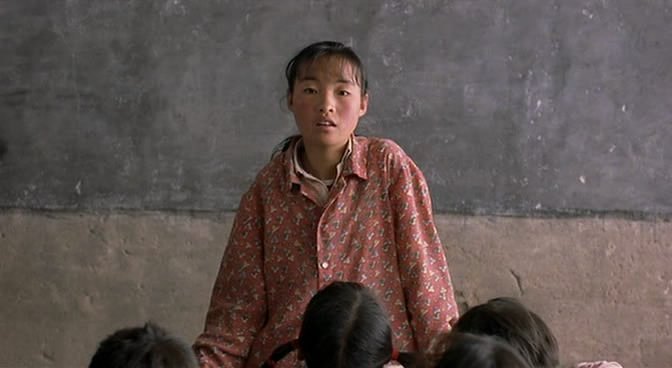
A film associated with a social subject, ‘Not One Less’ focuses on an era that faced a shortage in educated individuals in China and the various initiatives the Government had to take to get the soaring populace to schools. More than the urban population, who always had an affinity for education, the film highlights the government’s concern for a very less number of rural dwellers enrolling their children into schools. Set in the 90’s, the film begins with a teenage teacher Wei, who has been appointed at a countryside school as a substitute teacher and is tasked with keeping all the students within the school, as there were many students defecting to bigger cities in the search for jobs. More or less, the film has real people and has been shot in a documentary style, but still, it gives you the feel of a movie with a social cause.
23. Summer Palace (2006)
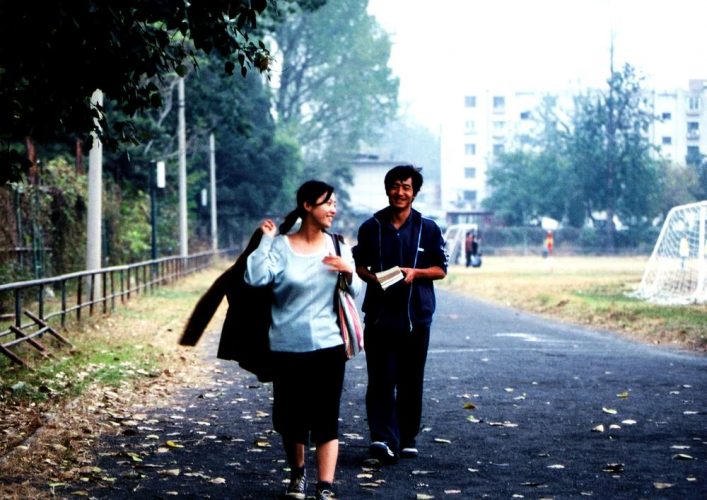
Set in the backdrop of the Tiananmen Square protests, the film follows the school and the subsequent university life of Yu Hong (Hao Lei) where she meets her lover Zhou Wei (Guo Xiaodong). They have a passionate and abusive affair as the Tiananmen Square protests are happening. The film then catches up with the characters several years later after the end of the cold war to catch up with the now embittered and disillusioned. The film is not only a personal narrative of You Hong, but it is also a harrowing account of state-inflicted brutality.
22. The 36th Chamber of Shaolin (1978)
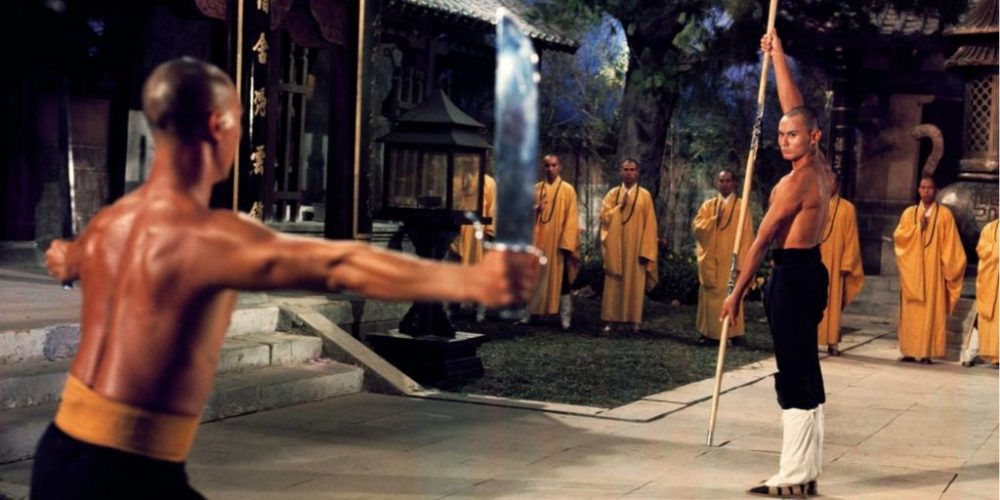
The rags to riches story which is perhaps one of the most famous Chinese films outside of China, ‘The 36th Chamber of Shaolin’ is the story of Yude, who later is known to be Monk San Te and it is the journey of Yude to become San Te that is worthwhile. Yude is lured into fighting a rebellion against the government by his teacher, wherein the government easily crushes the rebellion and kills many, thus leading Yude to escape and seek refuge at a Shaolin temple, where he’s accepted as a disciple after a lot of persuasions and trains in all of the temple’s 35 chambers in order to master the craft of Kung Fu. After mustering a lot of strength and know-how of the ancient art form, he defeats the evil general and establishes a 36th chamber for laymen to learn Kung Fu easily. The 36th Chamber of Shaolin’ is regarded as the greatest Kung Fu film ever made.
21. Red Sorghum (1987)
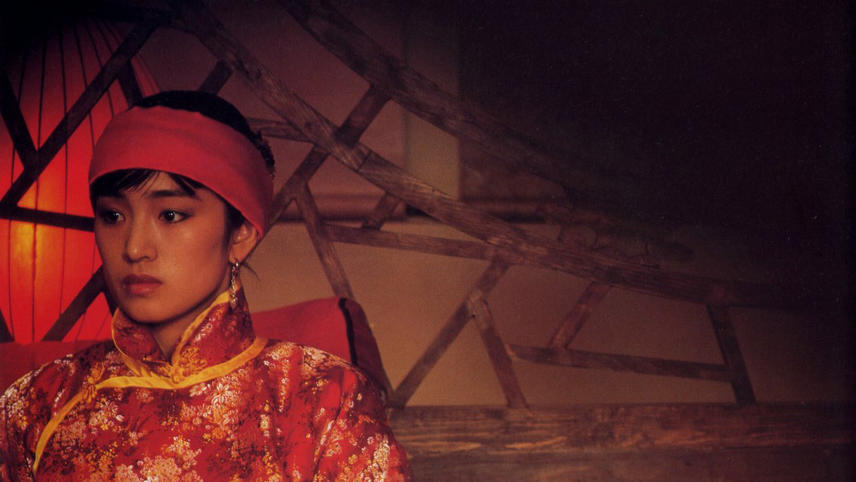
Adapted from the novel ‘Red Sorghum Clan’ by the Nobel Prize-winning novelist Mo Yan this film tracks the life of a woman working in a distillery that makes sorghum liquor. What sets this film apart from others is its complete lack of sophistication and stylization which quite successfully preserves the essence of peasant life.
20. Eat Man Drink Woman (1994)
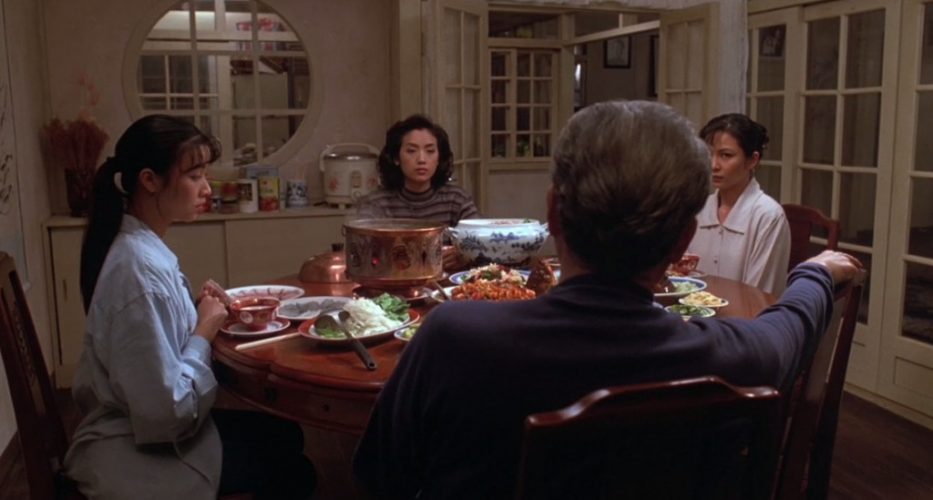
One of Ang Lee’s earlier works, ‘Eat Man Drink Woman’ is the “father knows best” recipe that went on to garner a cult following and rave reviews. Beginning with a chef Mr Chu, who is also the father of three spinster daughters – the eldest Jia-Jen being a chemistry teacher, the second daughter Jia-Chien working at an airline and the youngest, Jia-Ning working at a restaurant and is also a student. As the weekend approaches, Mr Chu would cook elaborate supper for himself and his three daughters and the supper table would be the place of their discussion about their love lives and the future, much to the daughters’ dissent. Things take a shocking turn when on one fine day, Mr Chu proclaims that he’s going to marry again. ‘Eat Man Drink Woman’ pleasantly highlights the positives of a dysfunctional family as they munch on delicious Chinese specialities.
19. Kung Fu Hustle (2004)
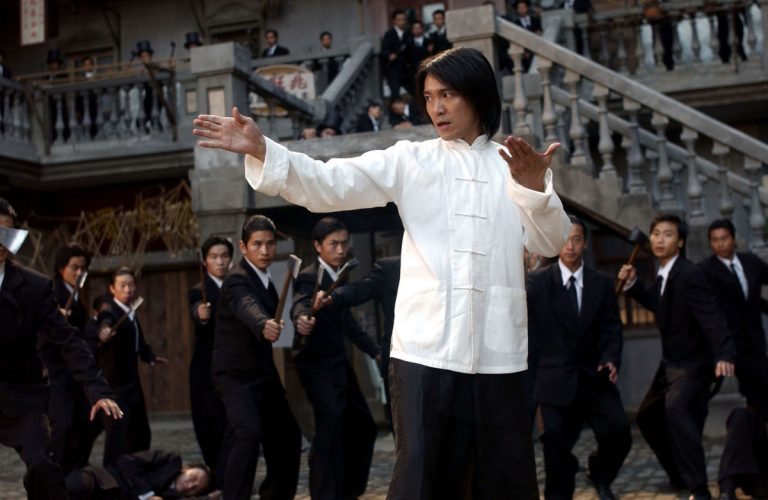
‘Kung Fu Hustle’ is set in the China of the ’40s, when law and order are in tithers and cities are overseen by crime lords and notorious criminal gangs. Axe gang, one of the most feared gangs of the city, has Sum as its overlord. Two friends, Sing and Bone are born and raised in Pigsty, one of the poorest urban neighbourhoods which have so far not been ransacked by the members of different gangs owing to their poverty. As the film progresses, it is revealed that many of the slum-dwellers are Kung Fu masters in disguise and that Sing and Bone need to decide which side they’re on. The film was praised for its perfect blend of the depiction of martial arts and humour, with detailed visuals.
18. Days of Being Wild (1990)
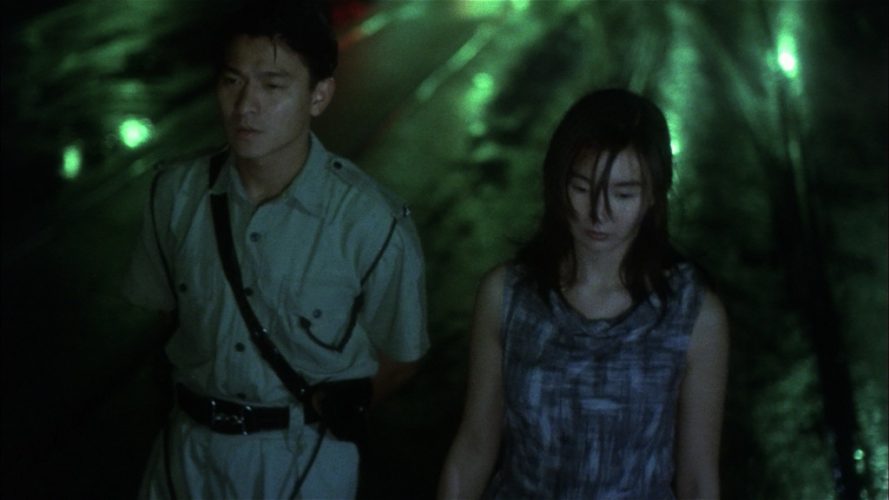
Another title from the oeuvre of Wong Kar-Wai, ‘Days of Being Wild’ is his second feature when he was yet to become one of the most influential filmmakers of the modern era. Here we see a more cautious Kar-Wai who has not yet adopted the experimental techniques that are his signature. Yet the film, following the life of the playboy Yuddy (Leslie Cheung) and his affairs with women, paves the way for classics like ‘Chunking Express’ or ‘In the Mood for Love’.
17. Hero (2002)
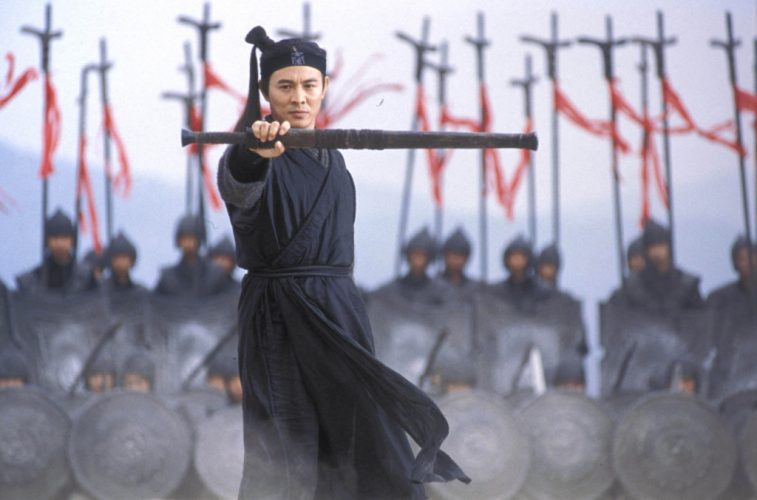
Jet Li plays the Nameless ‘Hero’ in this masterful adventure, and be prepared to be awed with ample surprises while you’re at it. ‘Hero’ begins with the Kingdom of Qin, the most powerful of the seven Chinese kingdoms of the feudal times, which as usual, is under thread from the attempts of assassinations and sabotages. More prominently, the King feels that they have a threat from three feared warriors – Broken Sword, Flying Snow and Sky, who reportedly have been sent by the other remaining six warring kingdoms. Nameless is a provincial official in Qin’s kingdom who reportedly has defeated all the three warriors. Surprised and taken aback by the big revelation, the king invites Nameless to his palace to narrate the heroic feat. But all is not as plain and straightforward as it seems to be. ‘Hero’ achieved critical acclaim upon its release and was termed “spectacular” by many western movie critics and reviewers.
16. To Live (1994)
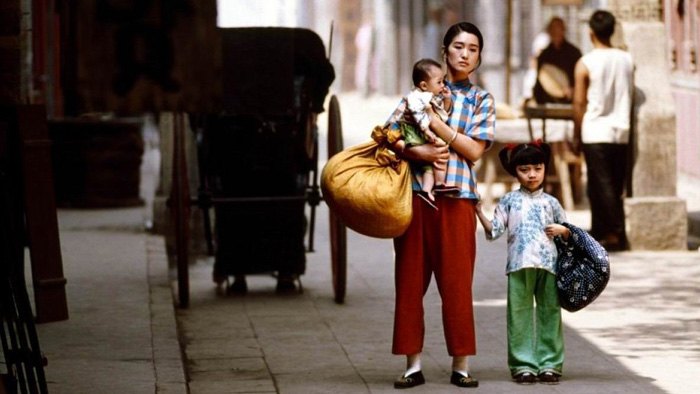
Adapted from the novel of the same name by Yu Hua, it tells the story of Fugui (Ge You), a compulsive gambler who loses his wife and home at a dice. The plot then follows the ordeals of Fugui as the country descends into a conflict that culminates in the May 4th Revolution. Also a gem of the fifth generation, this film critically re-examines the country’s past where party propaganda obscures ground realities which are not always concurrent to the party’s grand-narrative.
15. The Killer (1989)
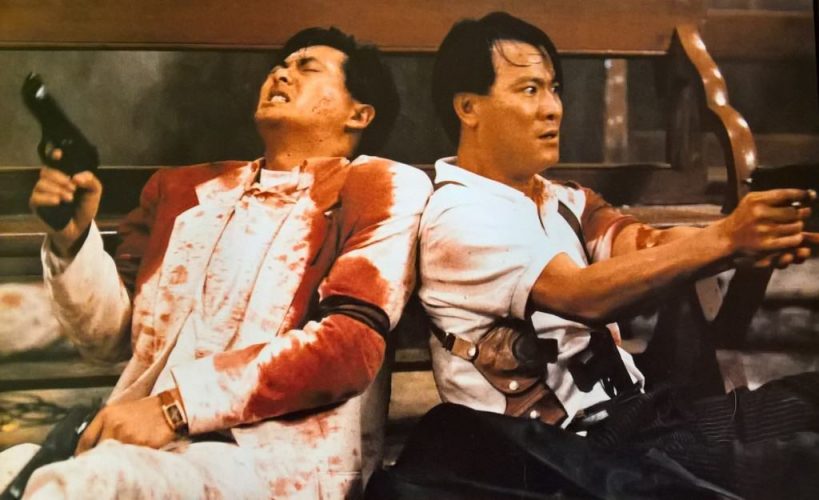
A signature John Woo’s directorial, ‘The Killer’ is the narrative of Ah Jong, a hitman who accidentally bruises the eye of a club singer Jennie during his ultimate assignment. Notwithstanding the fact that Jennie’s plight is his mistake, he follows her and falls in love with her. To get her an eye transplant, he accepts yet another job for killing someone in lieu of money but gets double-crossed and doesn’t get paid. As the film progresses, the police, the assassin and the assassin’s bosses engage in a bloodied, fast-paced confrontations, everything that leads to the elimination of the evil mob bosses. ‘The Killer’ was a smash hit, scoring high on action but about average on its screenplay. It has often been rated as one of the top 50 Asian films of all time.
14. 24 City (2008)
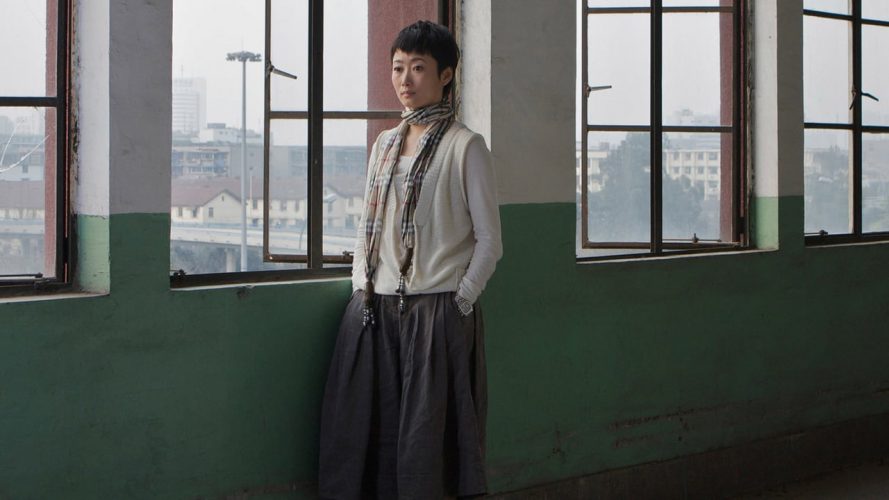
An indeed avant-garde form used by Jia Zhangke, this film makes use of a narrative style having features of both a documentary and fiction. It attempts to show how the closing down of a real state-owned factory affects workers through the use of a documentary-like technique where actors give interviews that are scripted.
13. Chungking Express (1994)
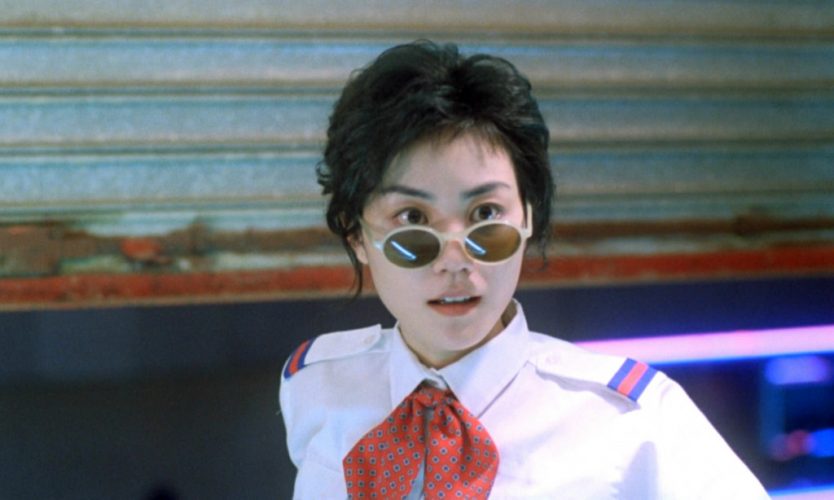
A film by Wong Kar-wai, the legendary auteur known for his visually enthralling on-screen miracles, ‘Chungking Express’ is the narrative of two cops who have been dealing with their heartbreaks. The first cop, a.k.a. Cop 223, a.k.a Qiwu has broken up with his girlfriend May on the first of April. In the memory of their relationship and because of the fact that May was a pineapple lover, Cop 223 buys pineapple cans which are about to go bad on 1st of May. Come 1st May, he meets another woman whom he immediately falls in love with, not knowing what would befall him later on. The second story is of Cop 663 who has broken up with his air hostess girlfriend but then meets up another girl who serves food at a restaurant. As with all Kar-wai’s films, ‘Chungking Express’ is a performance intensive, vibrant and memorable affair worth every second of your time.
12. The Blue Kite (1993)
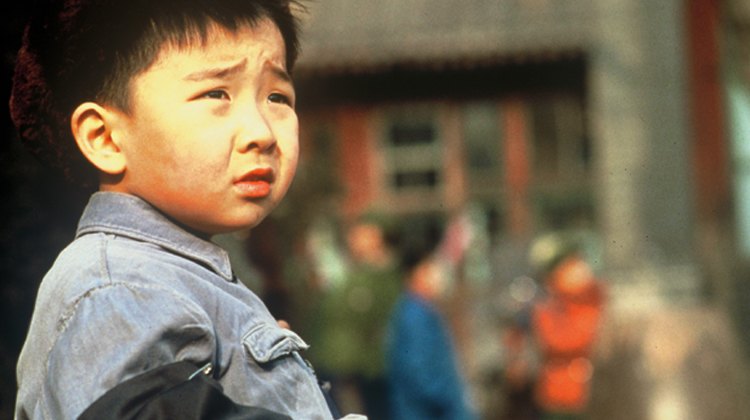
Along with ‘Farewell My Concubine’, ‘The Blue Kite’ is one of the most defining films of the Fifth Generation of Chinese cinema. Banned in China because of its political stance against the Communist party, this tale, narrated in three episodes through the perspective of a young boy blends the perpetual sense of terror propagated by the presence of the party in all aspects one’s life with the tragic state of affairs in the boy’s family.
11. Red Cliff (2008)
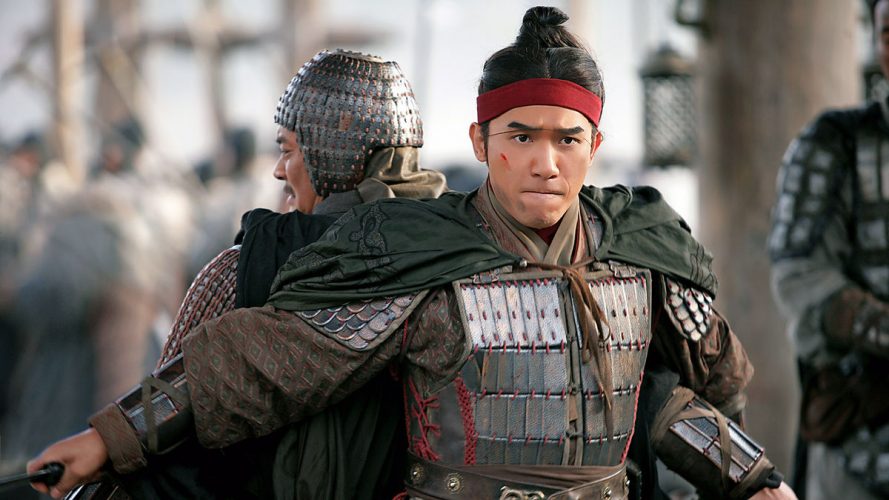
Yet another John Woo’s masterpiece on this list, ‘Red Cliff’ was filmed and released in two parts. The first chapter begins with Han Dynasty set in 208 A.D. Cao Cao is the fickle-minded Prime Minister to Emperor Xian of Han, wherein the former convinces the latter to wage war against the western and the southern rebel kingdoms which would change the course of history forever. With a million-strong army and an upcoming battle that could be worth a spectacle, the rebel kingdoms unite against a common enemy as the ultimate face-off happens at the Battle of Red Cliff, which went down in history as one of the most elaborate naval wars in the history of humanity. ‘Red Cliff’ has been hailed as a timeless masterpiece which boasts of epic action, triumphant battle sequences and an edge of the seat grit – everything you can expect from a John Woo’s film. The research for the centuries-old battle tactics that were shown in the film truly highlights the perfectionism Woo had eyed for.
10. Happy Together (1997)
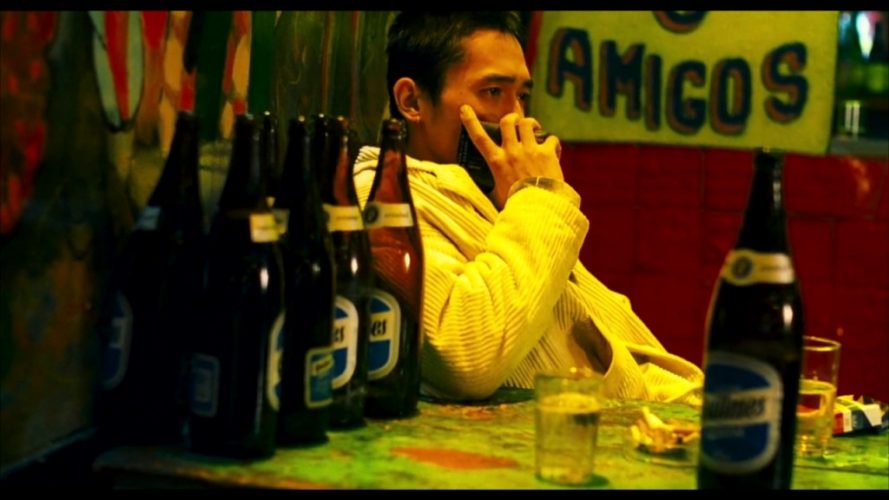
The film which helped Wong Kar-Wai get the award for the best director at the 1997 Cannes Film festival it’s a story about two men who plan to rebuild their already moribund relationship by coming to Argentina, hoping that the new environment would help them re-discover themselves. Kar-Wai’s ambitious experimentation with the cinematography helps the audience get a more intense experience of the volatility and abusiveness of the relationship.
9. Aftershock (2010)
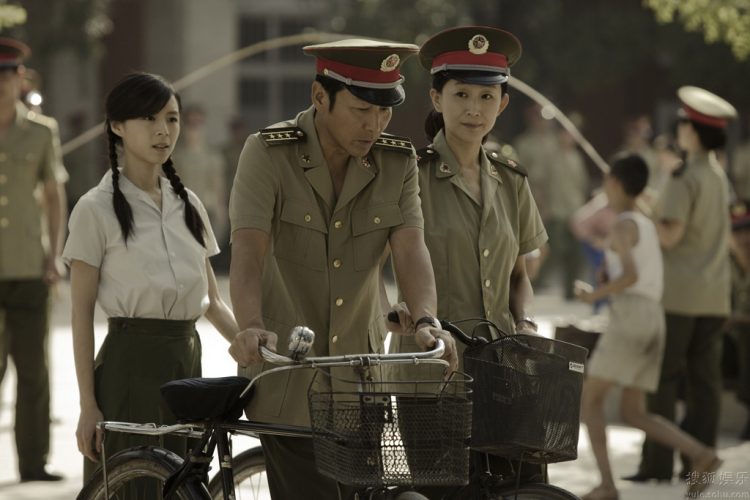
A movie that grossed more than US$100 million at the box office, ‘Aftershock’ is a historical disaster film based on the Tangshan earthquake of 1976 which killed more than 242,000 people in its aftermath. The movie is centred around the Daqing family, who have twins, Fang Deng and Fang Da, who live in an apartment in the suburb of Tangshan. On the wee morning hours in 1976, an earthquake strikes and the husband dies, leaving his wife Li and their twins trapped under the rubble. In their attempts to find the trapped children, they manage to find the boy – Fang Da and Fang Deng gets displaced, is found and adopted by a military family. Years later, when Deng is eloping from her adoptive parents, also because she’s is pregnant which she didn’t plan for and there’s another earthquake that has stricken, she finds her long-lost sibling and eventually, her mother. ‘Aftershock’ is one of the most successful films that was made in China but got critical acclaim from all over the world.
8. In the Heat of the Sun (1994)
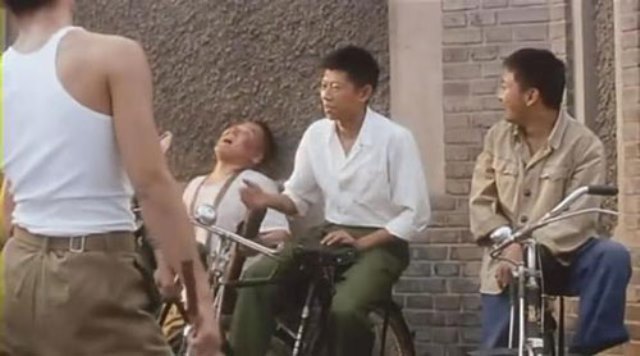
A heart-breaking tale of growing up spun with episodes of love, friendship and loss that is very post-modern in its flavour. It follows the personal narrative of a teenager growing up in a certain turf in Beijing where he interjects retrospectively from time to time. The brilliance of the film lies in the fact that the narrator is not one demi-god like entity that keeps track of all the events and characters in the film but rather a person who is just like one of us who occasionally lies and exaggerates in order to create fake impressions about himself in front of others. The film celebrates human fallibility and imperfections without assuming moral high-handedness.
7. Mountain Patrol (2004)
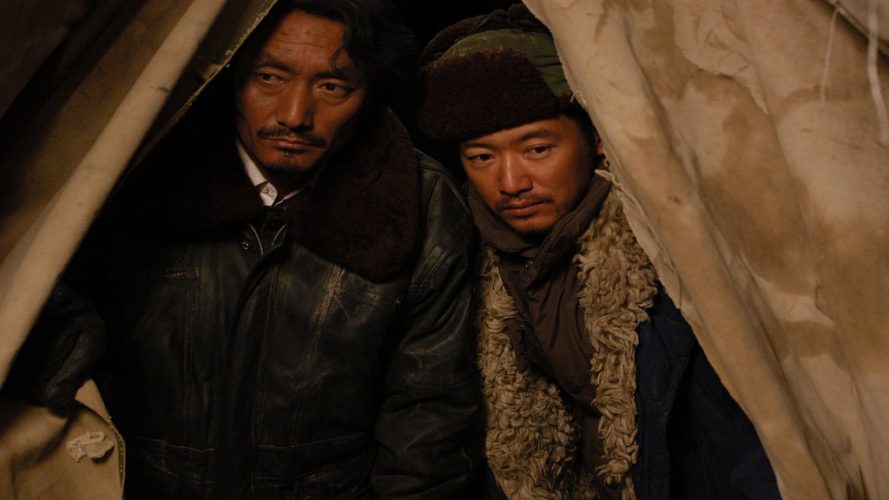
The film is primarily set in Kekexii, in the Quinghai-Tibet region and is primarily the narrative of poachers of the nearly-extinct Tibetan Antelope and the rangers, who, given the lack of government support have protected the animals on their own. Ritai is the leader of the patrol team whose one of the members have recently been executed. After being joined by Ga, a journalist, they embark on a quest to track down the poachers, with one trail leading to another. ‘Mountain Patrol’ is at times, brutal and wild in its demeanour and mostly imitates Hollywood in terms of its violence and gore, but at the same time, succeeds in retaining its Asian flavour.
6. City of Life and Death (2009)
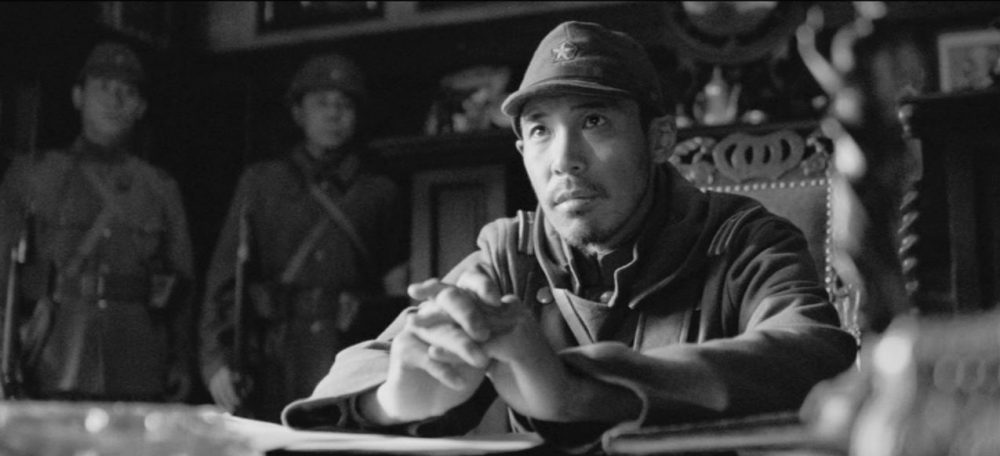
‘City of Life and Death’ is a disturbingly graphic war-drama dealing with the Japanese occupation of China and the massacre in the Chinese capital Nanjing. A haunting tale of inhuman brutality inflicted by humans on each other, the film progresses to a point of utter insanity where it becomes impossible to make sense of the violence anymore. Narrated with an ironclad objectivity and an emotional dryness that is almost frightening it is one of the most realistic accounts of war you’ll ever see.
5. Fearless (2006)
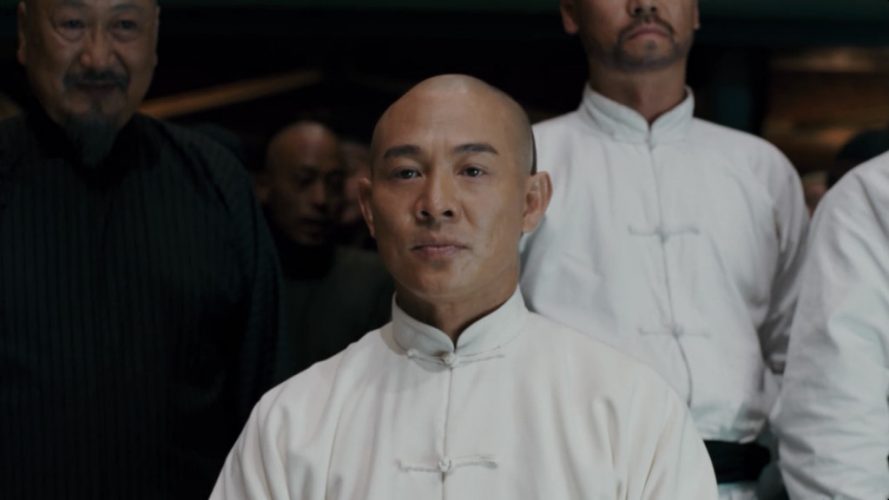
A biographical film at the outset, ‘Fearless’ is based out on the life and times of Huo Yuanjia, a renowned Wushu martial arts genius who brought immense fame to China with his publicized martial arts championships, prior to the formation of the Republic of China. Primarily defeating the people from the West, Huo brought in a great deal of nationalism among the Chinese residents and also his bouts against Japanese wrestlers would necessarily decimate Japan in the aftermath of the Japanese invasion of China. Jet Li aces his role as Huo and perhaps ‘Fearless’ is one of the best movies of Jet Li to date. Also, the way in which the action sequences have been filmed is commendable.
4. Devils on the Doorstep (2000)
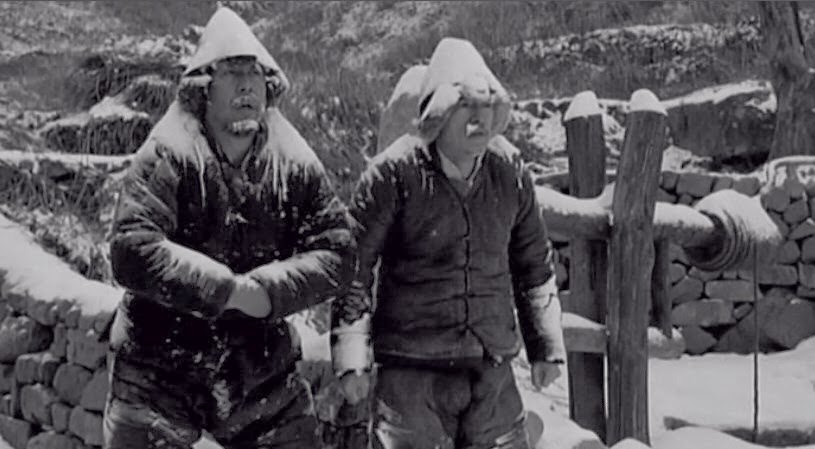
Along the Great Wall of China’s foothills, there lies a small village in which a farmer called Ma is greeted with a rather unpleasant man with a gunny sack of two men – a Japanese army man and a Chinese translator. It was during the peak of the Japanese invasion of China and the strange man asks Ma to keep the men inside gunny sack well-fed for a few days and interrogate them for details on enemy establishments. A scared and timid Ma agrees, but his patience along with the villagers’ runs thin as the strange man doesn’t return for another six months. Ma decides to hide the prisoners in one of the watchtowers along the Great Wall of China but when the villages find it out and return one of the Japanese men to the Japanese camp, they aren’t greeted with enthusiasm because the captives were believed to be dead and now celebrated as war heroes. The film was banned in China owing to its political incorrectness.
3. Farewell My Concubine (1993)
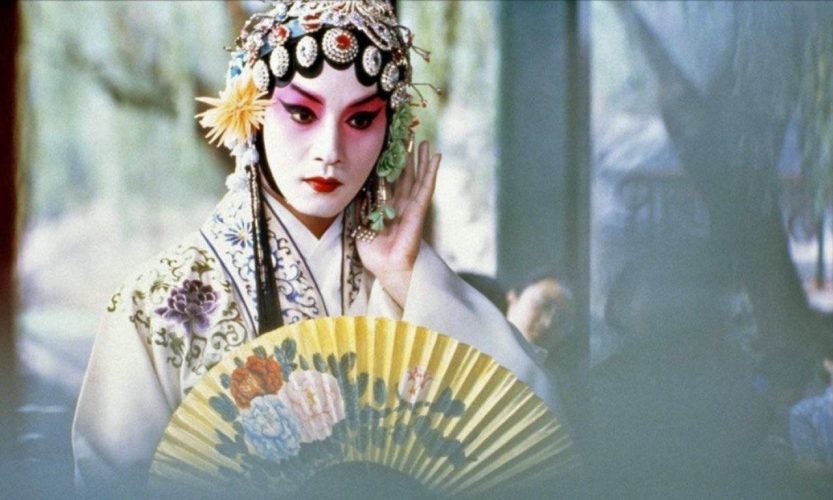
You don’t know what grandness is until you’ve watched Kaige Chen’s ‘Farewell My Concubine’. Set in the backdrop of Chinese history as the country is torn apart by political turmoil one after another starting from the warlord era to the May 4th Cultural Revolution, this film tracks the changing relationship between two actors tied by fate into a lifelong friendship on account of their roles in a popular indigenous play that they have been performing since childhood.
2. Crouching Tiger, Hidden Dragon (2000)
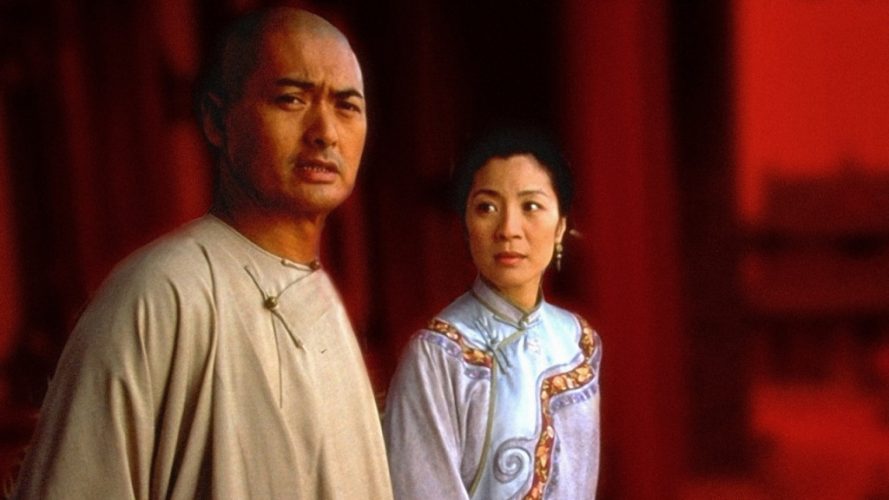
Ang Lee’s masterpiece is still viewed as one of the best action films of all time. An exquisite exhibition of skill and metaphysical-frippery, wrapped into an engaging narrative which will keep you at the edge of your seat, ‘Crouching Tiger, Hidden Dragon’ is spellbinding. A sacrosanct sword is stolen from the possession of Yu Shu Lien, who herself has got it bestowed upon her by the legendary Master Li. An embittered Lee embarks on a journey of romantic and thrilling adventures, filled with twists that will make you jump in surprise. There’s no denying the blatant fact that the movie struggles a bit with its pace. But the way Ang Lee shot the film, with symbolic and purposeful direction, is simply a treat to watch and savour.
1. In the Mood for Love (2000)
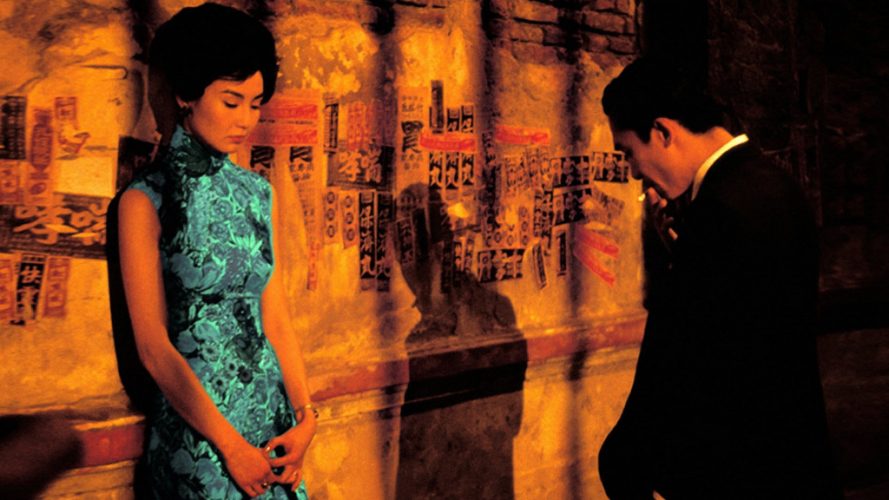
There is no film that deserves the numero uno spot more. The cinematography, the script, the plot and the background score make a sweet concoction that is bound to leave you intoxicated for quite some time. Wong Kar-Wai is a conjurer who turns the most clichéd and mundane of subjects concerning cinema: adultery, into a truly timeless work of art. The unorthodox use of music both from the West and from China helps the film to rise above its regional specificities and become a work of art that is trans-national in its spirit. I must say that it completely redefined Nat King Cole’s ‘Quizas’ which was one of the film’s soundtracks.

Comments
Post a Comment